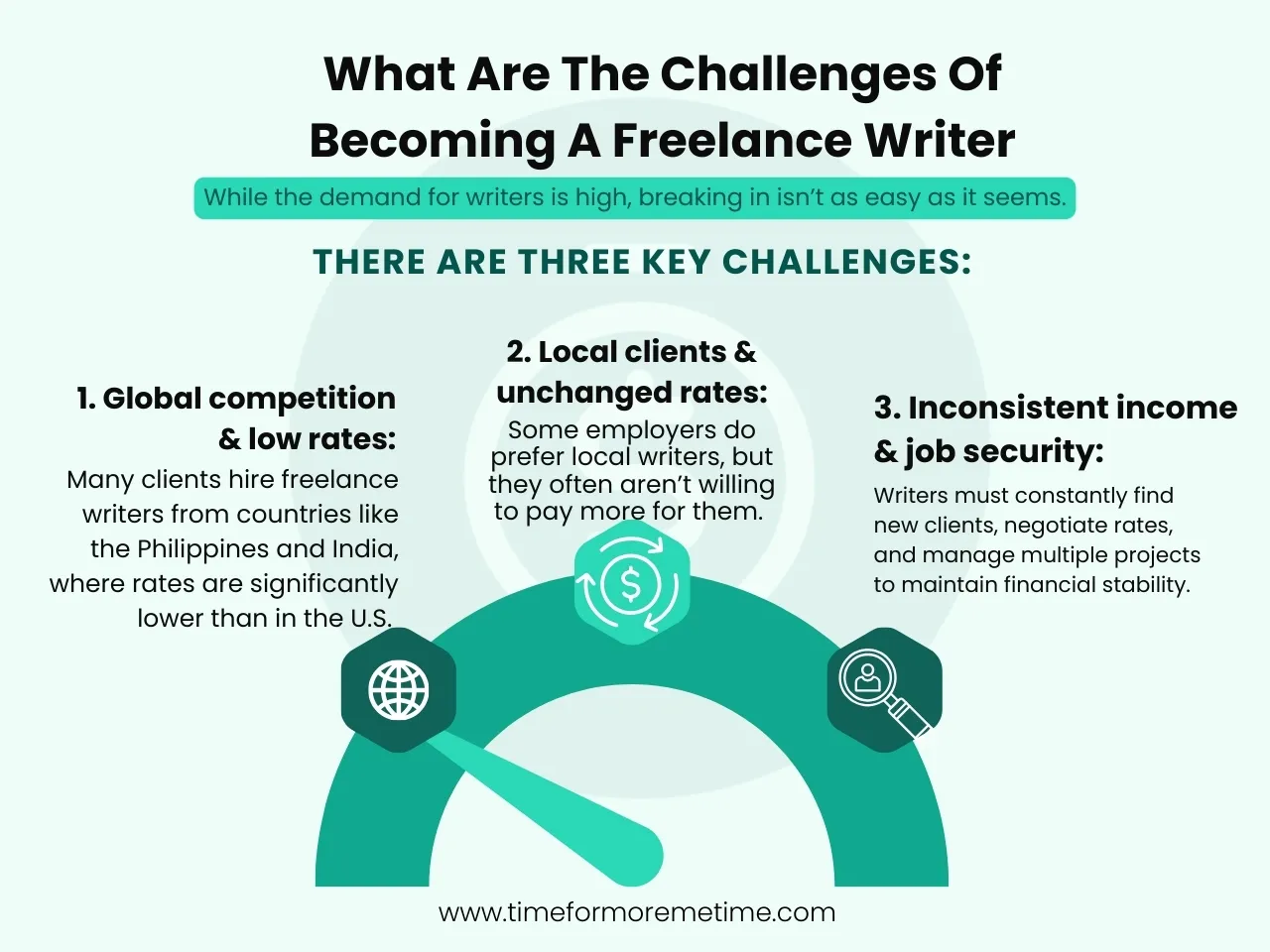
Did you know that freelance writing is one of the best side hustles out there? You can turn your love for words into cold, hard cash—it’s considered one of the top remote jobs out there!
But Robert, you ask, how would you even know what it’s like to be a freelance writer if you’re a dosimetrist? Good question. Most of what you’re about to read comes from stories my editor has shared with me. Funny enough, she’ll be editing this later.
From what I’ve gathered, becoming a freelance writer isn’t as simple as tapping away at your keyboard and watching the money roll in. Nope. Even I struggle to write these blog posts sometimes. And, as you might have guessed, I wouldn’t survive without my editor!
Most freelance writers don’t have the luxury of an editor. They’re expected to deliver polished work on their own—handling proofreading, fact-checking, and even search engine optimization (SEO).
If you want to succeed as a freelance writer, you need to be strategic, persistent, and willing to hustle harder than a used car salesperson on commission. The job demands high-quality work, but here’s the tricky part: quality is often subjective.
You have to meet each client’s unique expectations, which can be a challenge.
Freelance writing can feel like a jungle—competition is fierce, rejections are common, and steady pay isn’t always guaranteed. But if you’re willing to put in the effort and work smart, the rewards can be well worth it.
Anyway, let me stop rambling and get to the real meat of the topic. Let’s get started!
What Is Freelance Writing
We live in a world where words are everywhere—they inform, persuade, and entertain us daily. Look around, and you’ll see words on signs, screens, and packaging. Listen closely, and you’ll hear them shaping conversations, ads, and stories.
But where do all these words come from? Writers.
While some writers have full-time jobs, not every business needs a full-time professional writer. For instance, if a company only needs a few marketing materials, hiring a full-time writer wouldn’t make sense—unless they’re a marketing agency.
That’s why many businesses turn to freelance writers, shaping the writing industry into what it is today.
What Is The Nature Of Freelance Writing
As a freelance writer, you take on projects contract by contract rather than working full-time for a single employer. This setup allows for a flexible schedule, making it a popular choice for online entrepreneurs and digital nomads.
Who wouldn’t want to take on as many freelance writing jobs as they can handle, pick their own clients, and even turn blogging into a source of income? Freelance writing isn’t just a side hustle—it can be a highly lucrative career.
In fact, it’s one of the best remote jobs for moms, students, and anyone looking for flexible work.
What Do Freelance Writers Write

Freelance writers create a wide variety of content across different media. Here are some examples:
- Blog posts: Writing engaging and informative articles to attract readers.
- Copies: Crafting persuasive text for advertisements, websites, and marketing materials.
- Technical papers: Developing clear documentation such as user manuals and product guides.
- E-books: Creating in-depth content on various topics, from personal finance to gardening.
- Academic papers: Researching and writing scholarly articles, essays, and research papers following academic standards.
Freelance writing offers endless opportunities—you just have to know the best websites for freelance gigs.
What Are The Challenges Of Becoming A Freelance Writer

Before anything else, let me be upfront—freelance writing is a highly competitive industry. While the demand for writers is high, breaking in isn’t as easy as it seems. Why?
There are three key challenges:
- Global competition and low rates: Many clients hire freelance writers from countries like the Philippines and India, where rates are significantly lower than in the U.S. This makes it harder for writers in higher-cost countries to compete on price alone.
- Local clients and unchanged rates: Some employers do prefer local writers, but they often aren’t willing to pay more for them. This means U.S.-based writers are frequently offered the same low rates as offshore freelancers—often as little as $5 an hour.
- Inconsistent income and job security: Unlike a traditional job with a steady paycheck, freelance writing income can fluctuate. Some months may be profitable, while others may be slow. Writers must constantly find new clients, negotiate rates, and manage multiple projects to maintain financial stability.
These challenges can be intimidating, but they can be overcome with sheer determination and effort. Freelance writing can be a rewarding career, but success requires strategy, persistence, and a focus on finding clients who value quality over the cheapest option.
Fortunately, the benefits of becoming a freelance writer can far outweigh these obstacles—which I’ll discuss in the next section.
Why Become A Freelance Writer

With the challenges discussed, there are plenty of reasons why someone might want to become a freelance writer. Here are a few:
- Flexibility: Most writing and writer jobs—whether freelance or full-time—are done from home. In most cases, you can set your own schedule and choose projects that match your interests and experience level. Of course, deadlines still apply, but with proper time management, they’re manageable.
- Earning potential: While many clients try to lowball freelance writers, there’s no salary cap in this field. Some bigger clients are willing to pay more, and certain projects naturally come with higher price tags. With a strong portfolio, you can control your earnings based on workload. That’s why many writers transition to full-time freelancing.
- Variety of projects: Freelance writing offers diverse opportunities across different niches and media types. You can take a generalist approach for a dynamic, engaging career or specialize in a few areas to streamline your work and maximize earnings.
- Freedom from toxic work environments: As a freelancer, you choose your clients and collaborators. If you don’t like working with a particular client or team, you can simply move on once your contract ends—no office politics, no toxic work culture.
- Do what you love: If writing is your passion, freelance writing allows you to turn it into a career while getting paid to do what you enjoy!
As my editor said to me, freelance writing is not always a cakewalk, but with the right approach and a bit of determination, you can turn it into a sustainable career.
Conclusion
Got guts, grit, and a whole lot of hustle? Then freelance writing might be for you—because making it in this field isn’t for the faint of heart. But if you’re willing to put in the work on freelance writing platforms and the best websites for freelance writing, the rewards can be huge.
You’ll have the freedom to work from anywhere, be your own boss, and do what you love every day. And who knows? Maybe one day, you’ll be sipping margaritas on a beach, living the freelance writer’s dream—just don’t forget to tag me when you do!
Stop waiting—start searching for online writing jobs and take the first step toward success. You’ll never make money if you don’t take the leap!
By the way, I’ll be writing more about how to start a freelance writing career soon, so stay tuned!
Sources
- Photo: Unsplash: Daniel Thomas






